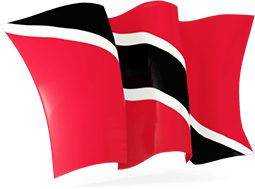
Code of Ethical Political Conduct

MEDIA RELEASE - August 1st, 2020
STATEMENT ON THE COUNCIL'S DELIBERATION
At its meeting on Thursday July 30, 2020, the Council for Responsible Political Behaviourconsidered variouscomplaintsof possible breaches to the Code of Ethical Political Conduct. Further to its deliberations, the Council would like to report to the national community that four complaints were deemed to be infractions to the Code. In this regard the following are the issues to which the Council would like to report:
-
Complaint that the Political Leader of the PNM, by referring to UNC supporters as “yellow Cheeseheads” on Monday July 27, 2020, was being derogatory, and demeaning to a significant portion of the population and to that end he was even being discriminatory.
The Council notes that original usages of the term “Cheesehead” were derogatory and slanderous. With no other point of reference to refer to anyone in Trinidad and Tobago as a cheesehead, it can only be asserted that the term was used in the same derogatory manner as was done when the term was used either in the USA or against the Dutch people. Moreover, with Dr Rowley adding the adjective “yellow,” he clearly targetted the UNC supporters in derisive and divisive name calling.This is a violation to various clauses of the Code which calls on politicians to Not uselanguagethat may invite, encourage or foster hatred nor should defamatory comments be made about any group or section of the Community.
-
Closely related was the complaint that a UNC supporter chastised the PNM’s candidate for St Augustine on the basis or race. The candidate was told that she had betrayed the East Indian community as it was a disgrace for an East Indian to be a PNM candidate.
The Council starts with the position that a basic right of each and every citizen is the right to join/support whichever political party s/he wishes to join or support. In signing the Code Parties committed to “Promote and enforce respect, tolerance, harmony and peace amongst their supporters and the general public...” In this regard, the statements made towards the candidate are a breach of the Code.
All parties are thus reminded that it is the responsibility of the party to bring to the attention of their supporters the tenets of the Code and further to ‘police” their supporters to ensure that the Code is not breached
-
Complaint that Ministries are advertising accomplishments in the media, as a means of promoting and campaigning for the incumbent government. The Council reviewed various advertisements in both the print and electronic media which seemingly were advocating the accomplishments of the various ministries. While such advertisements are somewhat normal in the context of disseminating information on the functioning of government, in the run up to an election, the presentation of the information could be used to give the impression that the accomplishments were largely as a result of the incumbent party policies and, by extension, could be viewed as promoting that party’s case for re- election. This perspective is advanced when the sitting Minister is making the case in video presentations and highlighting differences in policies and practices amongst administrations. Furthermore, it is noted that it is state resources that are being used to sponsor such advertisements, and in this regard, this could be viewed as an uneven playing field since all other parties do not have access to state resources to advertise their accomplishments and proposed policies. In this regard the Council reiterates that “State resources should not be used or abused for political campaigns.” Further, Clause 18 of the section on Prohibited conduct in the Code calls on Parties to: “Not issue advertisements or other marketing materials, the cost of which is borne by public funds.”
-
Complaint that the PNM’s St Joseph candidate and his supporters were told that their safety could not be guaranteed while campaigning in certain sections of the constituency, and PNM banners and posters were defaced.
The Council notes that a formal complaint was made to the police on this matter and the Code speaks directly to these issues. To be sure, the Code calls on all Parties and candidates to:
Not use language or act in a way that may --
Provoke violence; or
-
Intimidate Candidates, members of Parties, representatives or supporters of Parties or Candidates, or voters; or
-
Invite, encourage or foster hatred, resentment or any form of violence.
Not deface, or induce anyone to unlawfully remove or destroy, or deface the billboards, placards, posters or any other election materials of a Party or Candidate
-
The Council is reminding Political parties and Candidates that they must exercise a level of responsibility. The Code specifically demands that Political leaders and candidates should ensure that their conduct is above reproach. They must also make the Code known to supporters so as to promote adherence by all citizens.
Be that as it may, the Council again invites members of the public to visit its website www.politicalethicstt.org to view the Code it its entirety. While the primary role of the Council is to monitor and evaluate adherence to the Code, in the context of the extensive use of social media, the Council admits to being challenged in effectively monitoring social media, and in this context the Council is appealing to the citizenry at large to please bring to our attention any possible violations of the Code. Reports of such possible violations, along with any possible evidence of the violations should be emailed to the Council at info@politicalethicstt.org
Respectfully submitted on behalf of the Council,
Dr. Bishnu Ragoonath, Chair
